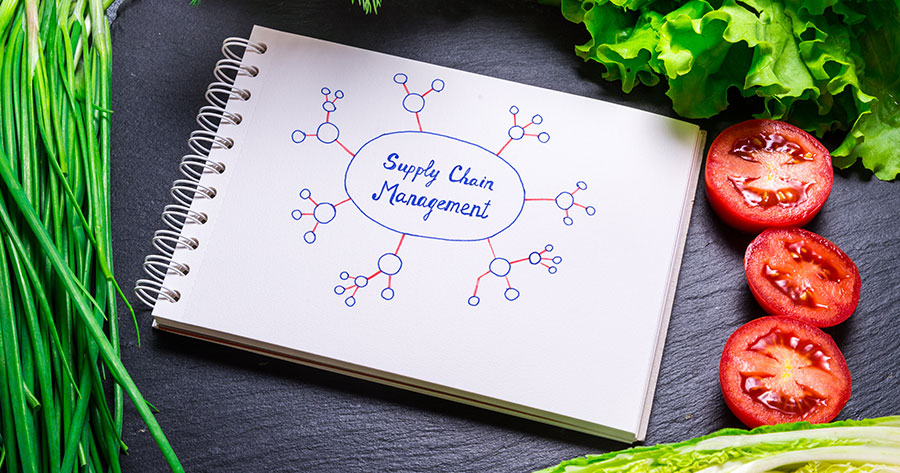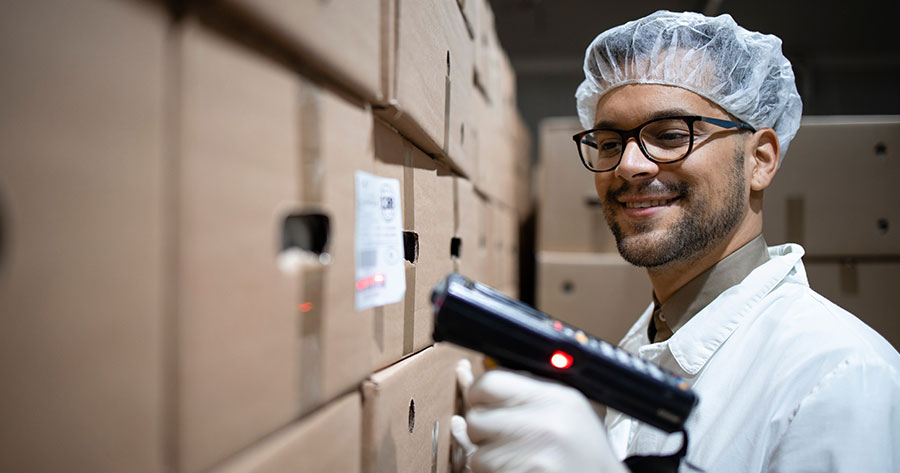
Perhaps no industry has been more affected by macroeconomic trends in recent years than the one that literally puts food on our plates. The logistics involved in growing, packing and delivering perishable food items were difficult prior to the pandemic, almost impossible to manage at its height, and have shifted again in the wake of surges in shipping costs, a tight hiring market, and rampant inflation. As a result, a recent Food Industry Association survey found that some 70% of food retailers expected that supply chain disruptions would negatively impact their businesses this year, while 86% of suppliers indicated that labor shortages were causing issues.
Earlier this year we asked more than 65 industry executives to share their thoughts on key drivers for improving manufacturing and operational efficiencies going forward. Each of the professionals had experience in national manufacturing and co-packing platforms in perishable food businesses with $250mm+ in revenue.
Overall, the responses from executives can be boiled down into 3 interrelated categories: collecting and leveraging data; improving automation and technology usage; and making the most of existing human capital.
The Power of Data

Several executives noted that innovation starts with effective measurement of existing systems and processes. Appropriate metrics and KPIs allow companies to set meaningful goals, monitor progress in real time, and adjust processes to further refine and improve performance—critical considerations when seeking to automate elements of a supply chain that have previously relied on human capital to run smoothly.
“[We’re focused on] improving results on five KPIs,” one executive said. “Being more efficient on global shipping, refining packing supplies, consolidating packaging, improving quality systems, and reducing waste and scraps by buying and shipping better.”
Another leader noted that “goal alignment through the organization” is a critical piece of establishing an effective, data-driven system. “Leading indicators come from the facility floor. We drive culture through this—the metrics and culture go together.”
Process Automation

Facing unprecedented labor shortages, it’s no surprise that many executives are turning to tech to fill the gaps in their organizations, from production and quality control to shipping and even back-office functions.
In an industry where minimizing spoilage and waste are critical drivers of profitability, leaders are especially keen to leverage the potential of AI and automation to improve quality control across the entire supply chain. “[We are adopting] automation with a focus on achieving quality standards,” one executive said.
The end goal, another leader noted, ties back to the focus on data and KPIs: with enough data points, “automation of management decision-making” can lead to better results not just in the supply chain, but throughout the entire organization.
People focus

While automation is a key component for helping companies to bridge the current labor shortage, leaders recognize the importance of maintaining a strong culture to attract and retain top performing employees.
“People are still our number one asset,” said one leader. “The more you focus on this, the more you will get results:
The heart of that balance between automation and human power revolves around development—ensuring that existing employees are doing work that is both rewarding and valuable. A key concern for one leader is “how to stretch folks beyond what they are doing today […] Labor automation and innovation are assets that can drive efficiency.”
Key Takeaway
The perishable food industry leaders surveyed by Carpe Diem are operating in an environment that has never been more complex. In response, they are leveraging every tool at their disposal to drive better results. In a period marked by disruption, innovation—founded on data—is leading to process improvements driven by a shift towards automation and technology, coupled with an approach to improving the value derived from existing human capital.


These market insights from Carpe Diem Global Partners are gathered from the firm’s extensive client work leading Board, CEO, CXO, and CHRO executive search engagements for public and private multinational companies. For deeper, custom insights, contact Jeff DeFazio at Jdefazio@carpediempartners.com.

